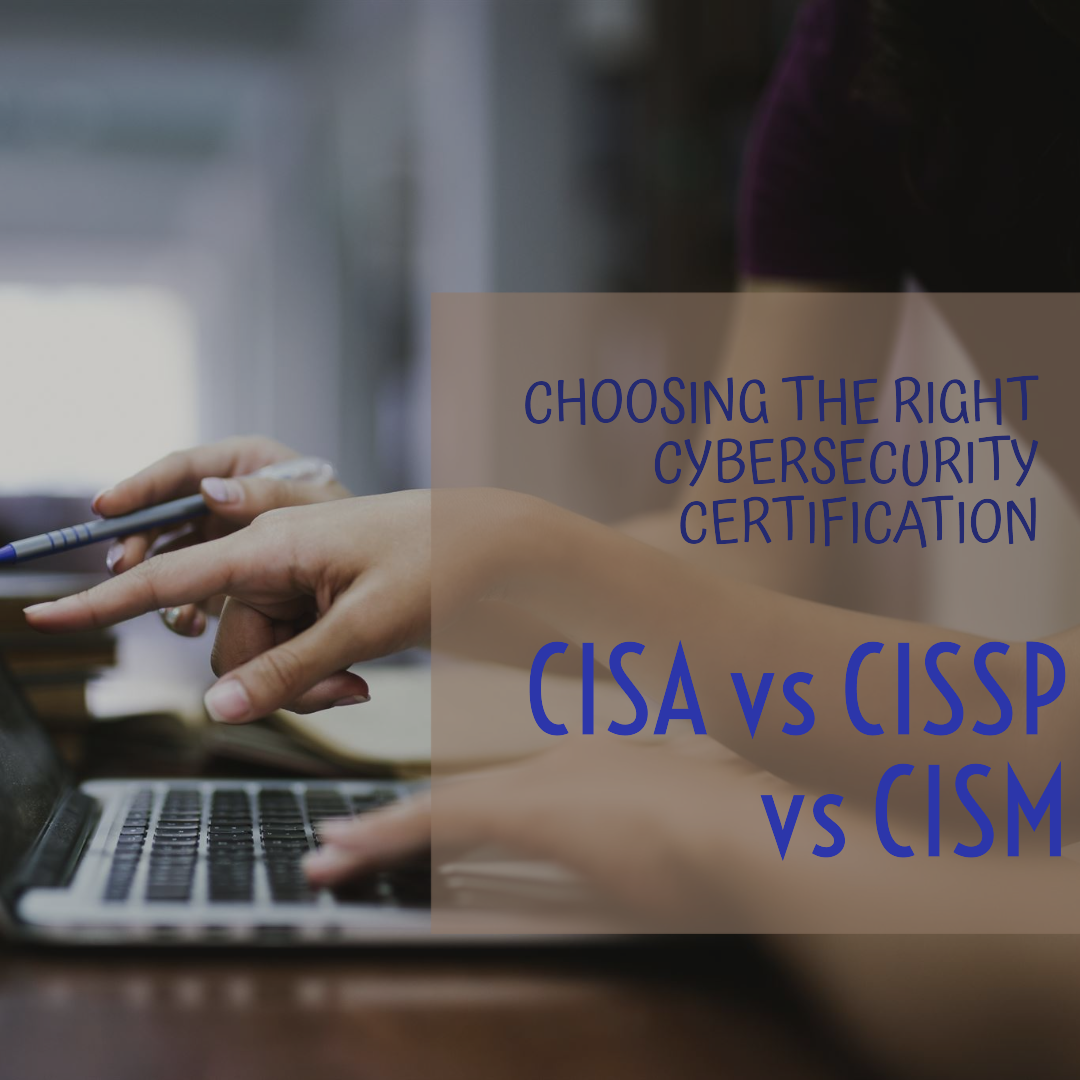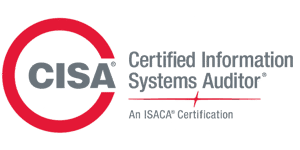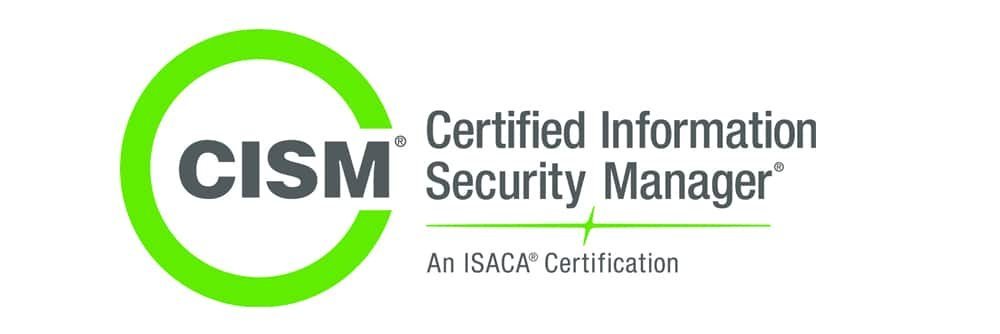Choosing the right information security certification can significantly impact your career trajectory. Among the top certifications in the field are the Certified Information Systems Auditor (CISA), Certified Information Systems Security Professional (CISSP), and Certified Information Security Manager (CISM). Each of these certifications caters to different aspects of information security: CISA focuses on auditing and control, CISSP provides a broad understanding of security practices, and CISM emphasizes management and governance. Understanding the nuances and focus areas of CISA vs CISSP vs CISM is crucial for making an informed decision about which certification aligns best with your career goals.

Each certification has a unique value, and choosing the right one can significantly influence your professional trajectory in information security. In this blog, we’ll delve into each certification’s specifics to help you make an informed decision.
Key Takeaways
- CISA focuses on IT auditing and controls, suitable for those interested in information systems auditing and assurance.
- CISSP is a broad cybersecurity certification covering various domains, ideal for those aiming for a comprehensive security role.
- CISM emphasizes information security management, making it a strong choice for those in or aspiring to management roles in security.
Between CISA vs CISSP vs CISM, each certification requires different experience levels and has distinct cost structures, reflecting their varied focus areas and career impacts.
Overview of CISA vs CISSP vs CISM Certifications
CISA (Certified Information Systems Auditor)
The CISA certification is for professionals who specialize in auditing, controlling, and ensuring the assurance of information systems. Offered by ISACA, it emphasizes the assessment and management of IT controls and systems, ensuring compliance with standards and regulations.
CISSP (Certified Information Systems Security Professional)
Administered by (ISC)², the CISSP certification is designed for IT security professionals. It covers a broad spectrum of security topics, including risk management, asset protection, and security architecture. The CISSP has global recognition for its rigor and depth in security practices.
CISM (Certified Information Security Manager)
Also provided by ISACA, CISM focuses on information security management. It targets professionals who manage, design, and oversee an organization’s information security program, emphasizing governance, risk management, and incident response.
What is CISSP?
The Certified Information Systems Security Professional (CISSP) stands out as one of the most prestigious IT security certifications. The CISSP enjoys high demand and is highly coveted in the cybersecurity field. According to the Bureau of Labor Statistics, cybersecurity jobs are expected to grow by 31% through 2029. This robust job market means that having the CISSP on your resume can significantly boost your job prospects.
Who Should Pursue the CISSP?
- Target Audience: The CISSP is designed for IT security professionals and their managers. It is essential for individuals whose daily tasks involve security considerations.
- Career Impact: Achieving the CISSP can boost your chances of securing a new job or advancing in your current role.
- Experience Requirement: The CISSP requires five years of professional experience in a cybersecurity-related field. If you are new to IT security, it may be prudent to gain more experience before attempting the exam.
Exam Details
- Format: The CISSP exam consists of approximately 125 questions and is allotted a total of six hours, though it typically takes around four hours to complete.
- Domains Covered:
- Risk and Security Management
- Asset Protection
- Security Engineering and Architecture
- Network and Communication Security
- Identification and Access Control
- Security Testing and Assessment
- Security Procedures
- Security in Software Development
- Additional Requirements: Candidates must pass the exam and have at least five years of experience in a cybersecurity-related role. Additionally, they must obtain endorsement from a current (ISC)² certification holder in good standing.
Cost and Value
- Exam Fee: The cost of the CISSP exam is $700.
- Return on Investment: Despite the high cost, the CISSP certification can lead to salaries exceeding $125,000 per year. Given this potential earning power, the $700 investment can be considered worthwhile.
Bottom Line
The CISSP certification is both prestigious and challenging, making it a valuable asset for IT security professionals. While the exam is costly and requires significant preparation, the potential for higher earnings and career advancement makes it a worthwhile endeavor for those with the requisite experience and commitment. Let’s now examine the CISA.
What is CISA?
If you specialize in IT audits, you should consider the Certified Information Systems Auditor (CISA) certification. The CISA focuses on inspecting IT systems and enforcing best practices in data governance. It benefits professionals who audit, conduct forensics, or investigate fraud and other online criminal activities.
Who Should Pursue the CISA?
- Target Audience: Ideal for individuals performing extensive audits or forensics on corporate IT systems.
- Career Impact: Obtaining a CISA is advantageous for those seeking managerial roles in IT audit and governance, similar to the CISSP in its impact on career advancement.
Exam Details
- Format: The CISA exam consists of 150 multiple-choice questions.
- Domains Covered:
- Processing and Auditing of Information Systems
- IT Governing and Management
- IS Development, Acquisition, and Implementation
- Resilience in Business and IS Operations
- Asset Protection for Information
- Difficulty: The CISA is generally considered less challenging than the CISSP. However, it remains a rigorous certification.
- Domain Overlap: The CISA and CISSP cover several overlapping areas, but the CISA is more focused on auditing and governance, whereas the CISSP addresses design and architectural aspects.
Cost and Value
- Exam Fee:
- ISACA Members: $415
- Non-Members: $575
- Return on Investment: Despite the cost, CISA-certified professionals often earn over $100,000 annually. The certification’s cost is offset by the potential high salary.
Additional Requirements
- Experience: A minimum of five years of professional experience is required, similar to the CISSP. However, certain waivers are available that can reduce the required experience time, such as a two-year reduction for holders of a Master’s degree in an IT-related field.
- Continuous Professional Education (CPE): To maintain their certification, CISA holders must complete at least 20 hours of CPE annually. ISACA provides various options to fulfill this requirement, including approved conferences and training sessions.
Bottom Line
The CISA certification is a valuable credential for IT audit professionals, offering substantial career benefits and earning potential. While the exam is challenging, it is less difficult than the CISSP and comes at a lower cost. With its focus on auditing and governance, the CISA is well-suited for those in or aiming for managerial roles in IT audit and security.
What is CISM?
The Certified Information Security Manager (CISM) certification serves as an advanced credential for professionals who create and manage an organization’s information security program. ISACA, a nonprofit organization specializing in information security, assurance, risk management, and governance, offers the CISM certification to validate expertise in these crucial areas.
Who Should Pursue the CISM?
- Target Audience: The CISM is aimed at professionals who are involved in managing information security programs and overseeing information security efforts within an organization.
- Career Impact: Earning a CISM certification is beneficial for those seeking leadership roles in information security and management, significantly enhancing career prospects and demonstrating advanced skills in the field.
Exam Details
- Format: The CISM exam consists of 150 multiple-choice questions.
- Passing Score: A minimum score of 450 is required, assessed on a 200–800 scaled scoring approach.
- Domains Covered:
- Governance of Information Security
- Managing Information Risk
- Development and Management of Information Security Programs
- Management of Information Security Incidents
Prerequisites for CISM
- Experience Requirements:
- Minimum Experience: Candidates must have at least three years of experience in information security management, covering three or more of the CISM content areas.
- General Experience: There must be a total of five years of verified experience in the information security field.
- Experience Timeline: Experience must be obtained within five years after passing the exam or within ten years of the application date, whichever is sooner.
CISM Continuing Professional Education (CPE) Requirements
- CPE Hours: Certified CISM professionals must complete a minimum number of Continuing Professional Education (CPE) hours each year to maintain their certification.
- CPE Options: Candidates can earn CPE hours through various activities, including attending approved conferences, training sessions, and relevant educational courses.
Cost and Value
- Exam Fee: The CISM exam costs less than some other advanced certifications, reflecting its focused expertise in information security management.
- Return on Investment: CISM-certified professionals often benefit from higher earning potential and enhanced career opportunities due to their advanced skill set in managing information security programs.
Bottom Line
The CISM certification is a prestigious credential for professionals who oversee information security programs and incidents. It provides a significant career boost by validating expertise in governance, risk management, and program development. While the certification process requires meeting specific experience and exam requirements, the investment is well worth the potential for career advancement and increased earning potential.
Understanding The Differences Between CISA vs CISSP vs CISM
| Aspect | CISA | CISSP | CISM |
|---|---|---|---|
| Full Form | Certified Information Systems Auditor | Certified Information Systems Security Professional | Certified Information Security Manager |
| Administering Body | ISACA | (ISC)² | ISACA |
| Focus Areas | IT auditing, control, compliance | Information security, risk management, security architecture | Information security management, governance, risk |
| Domains Covered | 5 Domains: IT Governance, IS Auditing, IS Development, IS Operations, Asset Protection | 8 Domains: Risk Management, Asset Protection, Security Engineering, Communication Security, etc. | 4 Domains: Governance, Risk Management, Program Development, Incident Management |
| Experience Requirement | 5 years of work experience in information systems | 5 years of work experience in security domains | 3 years of experience in information security management, 5 years total in the field |
| Exam Length | 150 questions, 4 hours | 125 questions, 6 hours | 150 questions, 4 hours |
| Cost | $415 for ISACA members, $575 for non-members | $700 | $575 |
| Annual Renewal Fee | $45 | $125 | $45 |
| Salary Range | $99,000 per year (average) | $107,000 per year (average) | Comparable to CISSP, often slightly less |
| Job Openings | 8,906 LinkedIn listings | 21,714 LinkedIn listings | 6,000 LinkedIn listings (approximate) |
CISA vs CISSP: Similarities and Differences
Similarities
- Experience Requirements: Both CISA and CISSP require a minimum of five years of relevant work experience. This ensures that candidates have substantial practical knowledge before attempting the exams.
- High Earning Potential: Professionals with either certification can expect competitive salaries, typically around $100,000 per year, reflecting the high demand for skilled IT auditors and security professionals.
- Continuous Professional Education (CPE): Both certifications require ongoing education to maintain certification. This involves earning CPE credits through relevant activities such as attending seminars and webinars and participating in cybersecurity-related events.
Differences
- Focus and Scope:
- CISA: Primarily focuses on IT audit, control, and assurance. It is ideal for professionals involved in auditing IT systems and ensuring compliance with policies and regulations.
- CISSP: Covers a broader spectrum of information security, including risk management, security architecture, and asset protection. This certification is the right fit for security professionals who design and implement security measures.
- Domains:
- CISA: Includes five domains focusing on auditing, governance, and management of IT systems.
- CISSP: Encompasses eight domains that address various aspects of information security, including risk management and security engineering.
- Cost and Renewal:
- CISA: Lower exam cost and renewal fee compared to CISSP. This can be a more cost-effective option for those starting their careers in IT auditing.
- CISSP: Higher cost and renewal fee but often translates to higher salaries and broader job opportunities in security roles.
- Exam Difficulty:
- CISA: Considered less challenging than CISSP, with fewer domains and a more focused scope.
- CISSP: Known for its comprehensive coverage and higher difficulty, reflecting its broader application in information security.
CISM vs CISSP: Choosing the Right Path
Similarities
- Management Focus: Both CISM and CISSP emphasize management and strategic aspects of information security, though they target different roles and responsibilities.
- CPE Requirements: Both certifications require ongoing education to maintain certification, ensuring that professionals stay updated with the latest developments in their fields.
- Career Advancement: Holding either certification can lead to career advancement opportunities, higher salaries, and increased job security in the information security field.
Differences
- Focus Areas:
- CISM: Concentrates on information security management, including governance, risk management, and program development. It is geared towards professionals in management roles who oversee security programs.
- CISSP: Focuses on a wider range of security topics, including technical and managerial aspects. It is suitable for professionals involved in implementing and managing security measures.
- Experience Requirements:
- CISM: Requires three years of management experience in information security, with a total of five years of relevant experience.
- CISSP: Requires five years of experience in security domains, with no specific management focus.
- Exam Content:
- CISM: Covers four domains related to information security management and governance.
- CISSP: Encompasses eight domains with a broader focus on technical and managerial security practices.
- Career Goals:
- CISM: Ideal for those aiming for executive roles such as CISO or security manager, focusing on strategic management and oversight of security programs.
- CISSP: Suitable for those pursuing technical roles in security engineering or architecture, with a focus on designing and implementing security solutions.
Which certification is better for you?
Selecting the appropriate certification between CISA vs CISSP vs CISM depends on your career goals, experience, and the roles you aspire to. Here’s a closer look at how to choose the right certification for your career path:
Career Objectives and Aspirations
- CISA (Certified Information Systems Auditor): Ideal if you are interested in focusing on IT auditing, control, and assurance. CISA is suited for professionals who wish to work in roles evaluating and improving IT systems and controls. Future roles include IT Auditor, Information Systems Auditor, and IT Compliance Specialist.
- CISM (Certified Information Security Manager): Best for those aiming to advance into management positions focused on information security. CISM is tailored for professionals overseeing and managing enterprise information security programs. Future roles include Information Security Manager, Security Consultant, and Chief Information Security Officer (CISO).
- CISSP (Certified Information Systems Security Professional): Ideal if you seek a broad, in-depth understanding of information security. CISSP covers various aspects of security and is suitable for those working in advanced security roles or managing large-scale security programs. Future roles include Security Analyst, Security Architect, and Director of Security.
Professional Experience and Background
- CISA: This certification is best for those with a background in IT auditing or control. It validates skills and enhances employability in audit-focused roles, including internal auditing, financial auditing, or IT compliance.
- CISM: Ideal for professionals with experience in information security management, risk management, or strategic security planning. It complements skills and advances careers into higher management roles.
- CISSP: Best for those with extensive experience in information security across multiple domains. It is suitable for those with experience in security engineering, security architecture, or technical security management.
Cost and Time Commitment
- CISA: More affordable with a lower exam cost and renewal fee. Preparation requires moderate study time, with the exam lasting four hours and focusing on practical auditing and control scenarios.
- CISM: Moderate cost, with preparation involving several months of study. The exam duration is four hours, focusing on information security management and requiring a solid understanding of strategic and management concepts.
- CISSP: Typically the most expensive certification with higher exam costs and renewal fees. Preparation is extensive, requiring several months of dedicated study. The exam lasts six hours and covers a broad range of security domains.
Long-Term Career Benefits
- CISA: Provides a solid foundation for careers in IT auditing and control, offering opportunities for growth in compliance, audit, and risk management roles. It also opens doors to professional networks within the auditing and control communities.
- CISM: Highly regarded for information security management, offering long-term benefits in strategic roles and leadership opportunities. It establishes credibility in managing security programs and aligns security initiatives with business objectives.
- CISSP: Offers extensive career benefits with advanced roles in security architecture, engineering, and management. It is globally recognized, enhancing professional standing and opening opportunities for international roles and positions in multinational organizations.
Choosing the right certification depends on your career goals, experience, and the roles you aspire to. Each certification offers unique advantages and can significantly impact your career trajectory in the field of information security. By carefully evaluating your professional objectives and aligning them with the strengths of CISA vs CISSP vs CISM, you can make an informed decision that will support your career growth and success.
Additional Resources
For those considering these certifications, additional resources can provide valuable insights and support:
- CISA: ISACA’s official website offers resources, study guides, and forums for CISA preparation.
- CISM: ISACA also provides study materials, practice exams, and networking opportunities for CISM candidates.
- CISSP: (ISC)² offers extensive study guides, training programs, and practice exams for CISSP preparation.
Investing in these certifications can advance your career and enhance your expertise in information security and IT management. Choose the certification that aligns with your career goals and embark on a path that offers growth, opportunity, and professional satisfaction.
What’s Next
Choosing between CISA vs CISSP vs CISM largely depends on your career goals and interests. If your focus is on IT auditing and controls, CISA provides the specialized knowledge needed to excel in this area. For a broader, more comprehensive understanding of information security across various domains, CISSP stands out as a versatile certification. Meanwhile, CISM is tailored for those aiming to take on leadership roles within information security, combining technical expertise with strategic management skills.
Each certification holds significant value, and the right choice will align with your career aspirations and current role. Consider the certification requirements, costs, and potential career opportunities when making your decision. Investing in one of these certifications can be a strategic move toward advancing your career in the dynamic field of information security.


